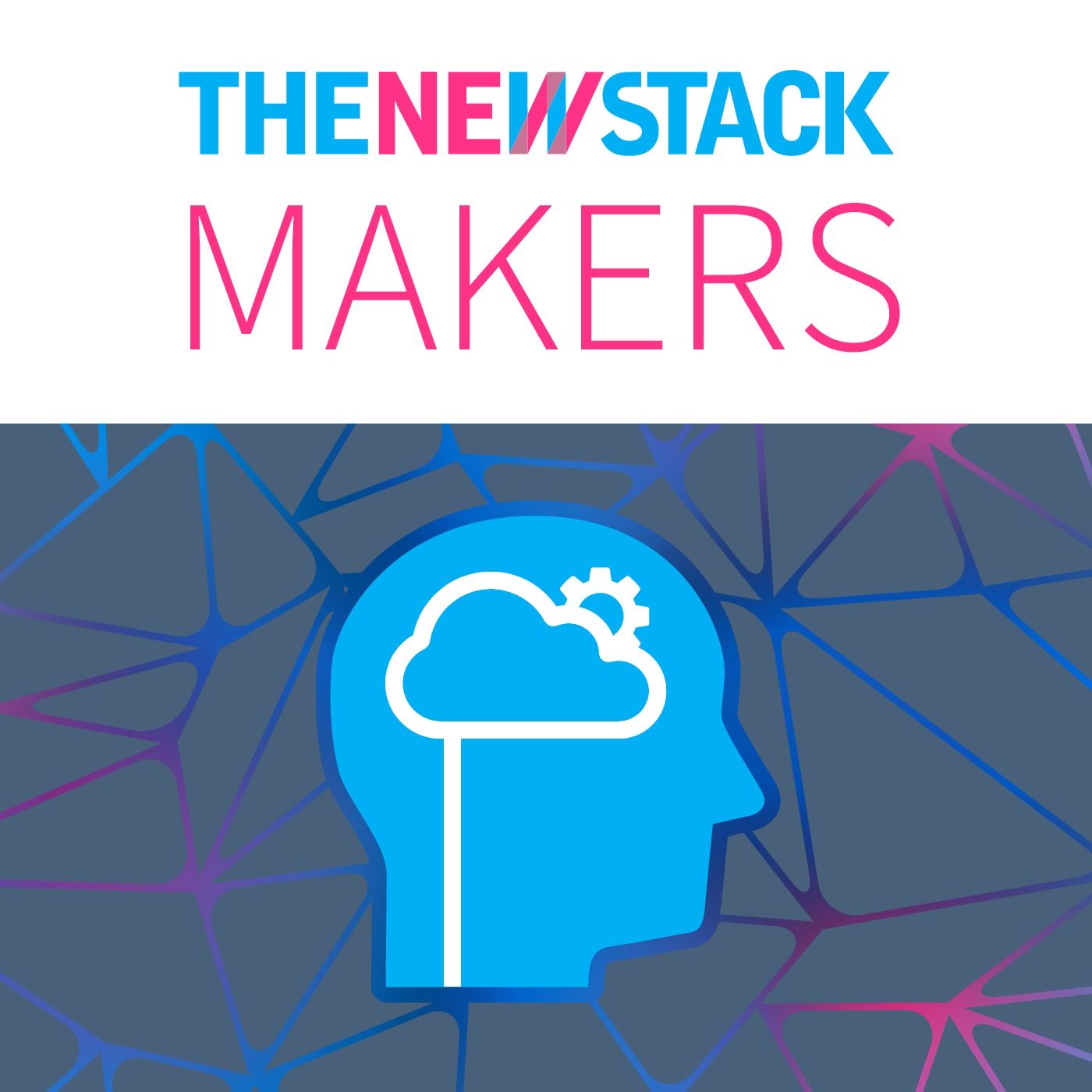

The New Stack Podcast
The New Stack
The New Stack Podcast is all about the developers, software engineers and operations people who build at-scale architectures that change the way we develop and deploy software.
For more content from The New Stack, subscribe on YouTube at: https://www.youtube.com/c/TheNewStack
For more content from The New Stack, subscribe on YouTube at: https://www.youtube.com/c/TheNewStack
Episodes
Mentioned books

Jan 29, 2026 • 29min
Meet Gravitino, a geo-distributed, federated metadata lake
Junping (JP) Du, founder and CEO of Datastrato and creator of Apache Gravitino, builds open-source, geo-distributed metadata infrastructure. He discusses Gravitino as a catalog-of-catalogs that unifies metadata across engines, its engine-neutral governance role, multimodal and cross-cloud support, v1.1 milestones, and the roadmap toward agent-native metadata and broader engine integration.

Jan 22, 2026 • 24min
CTO Chris Aniszczyk on the CNCF push for AI interoperability
Chris Aniszczyk, co-founder and CTO of the Cloud Native Computing Foundation, discusses the intersection of AI and cloud-native technology. He explores the similarities between AI agents and microservices, stressing that true 'AI native' systems must be cloud native. Aniszczyk highlights CNCF's initiatives to set AI workload standards, addressing the industry's inconsistencies in GPU and TPU resource management. He also introduces exciting projects like Metal³ for bare-metal Kubernetes and OpenYurt for edge deployments, forecasting a bright future for AI infrastructure.

Jan 15, 2026 • 19min
Solving the Problems that Accompany API Sprawl with AI
Neeraj Nargund, IBM's strategic partnerships lead for the automation brand, dives into the complexities of API sprawl and its security implications. He emphasizes the importance of smart APIs infused with AI for better governance and real-time data interpretation. The discussion explores how organizations can monetize API-generated insights and the need for centralized management in hybrid environments. Neeraj also touches on IBM’s latest API Connect features and the role of AI in transforming business processes, ensuring enterprises can scale effectively.

Jan 13, 2026 • 34min
CloudBees CEO: Why Migration Is a Mirage Costing You Millions
Anuj Kapur, CEO of CloudBees and an expert in DevOps and software modernization, reveals eye-opening insights from their recent survey on enterprise migrations. He describes the 'migration mirage,' explaining how costly migrations often delay value and demoralize developers. Anuj emphasizes the importance of treating developers with flexibility rather than rigid mandates. He believes that embracing developers' tool preferences and leveraging AI can lead to a new era of software development by 2026, where efficiency reigns supreme.

12 snips
Jan 7, 2026 • 23min
Human Cognition Can’t Keep Up with Modern Networks. What’s Next?
Sunil Nambier, Client Engagement Lead at IBM Network Intelligence, shares insights on the complexities of modern network operations. He discusses how IBM's strategic acquisitions aim to enhance enterprise AI by providing essential infrastructure. Nambier highlights trust as a major barrier to AI adoption, due to risks and fragmented data. He introduces AI agents that can detect pre-outage patterns and improve incident response times. He also emphasizes the need for knowledge management to combat the skills gap in network operations.

9 snips
Dec 30, 2025 • 17min
From Group Science Project to Enterprise Service: Rethinking OpenTelemetry
Ari Zilka, founder of MyDecisive.ai and former Hortonworks CPO, brings his rich background in big data to the forefront of observability. He critiques the current state of observability tools for being reactive rather than proactive, sharing insights from discussions with 23 vendors at KubeCon. Ari emphasizes the need for AI-driven solutions that reduce mean time to resolution and operational overhead. He highlights how MyDecisive aims to transform OpenTelemetry into an enterprise-ready service, simplifying telemetry management and automation for developers.

18 snips
Dec 23, 2025 • 28min
Why You Can't Build AI Without Progressive Delivery
James Governor, co-author of the book "Progressive Delivery" and analyst at RedMonk, explores the critical link between AI development and modern release practices. He highlights how AI systems can produce unpredictable behaviors, making progressive delivery techniques essential. Governor introduces his four A’s framework—abundance, autonomy, alignment, and automation—which emphasizes user satisfaction over mere metrics. He argues for reconnecting teams with real user outcomes and shows how these strategies enhance both software delivery and AI deployment.

Dec 18, 2025 • 15min
How Nutanix Is Taming Operational Complexity
Deepak Goel, Nutanix Chief Technology Officer, explores the complexities of modern cloud environments. He highlights the struggle companies face in managing legacy systems while adopting microservices and Kubernetes. Goel discusses how platform engineering can streamline operations and the vital role of internal developer platforms in reducing friction. He unveils Nutanix's latest advancements in Data Services for Kubernetes, emphasizing enhanced security and data protection. Additionally, he shares insights on integrating AI to simplify coding and improve infrastructure efficiency.

13 snips
Dec 18, 2025 • 30min
Do All Your AI Workloads Actually Require Expensive GPUs?
Joining the conversation are Andrei Gueletii, a Google Cloud Technical Solutions Consultant; Pranay Bakre, a Principal Solutions Engineer at Arm; and Gari Singh, a Product Manager for Google Kubernetes Engine. They dive into why Google's Axion CPUs offer a compelling alternative to traditional GPUs, emphasizing cost-efficiency and energy savings. The guests discuss the flexibility of custom machine shapes in GKE, the shift to ARM architecture, and how many AI workloads can run more efficiently on CPUs. Insights into deployment at the edge and optimizing resource allocation add to the appeal.

14 snips
Dec 17, 2025 • 31min
Breaking Data Team Silos Is the Key to Getting AI to Production
Thanos Matzanas is an IBM observability expert focused on AI production, while Martin Fuentes is an AI ops practitioner specializing in product management. They delve into how organizational silos hinder AI deployment, emphasizing the importance of breaking down barriers between data scientists and operations. They discuss using OpenTelemetry for observability, the challenges of measuring AI performance, and the critical role of human feedback. Both guests stress that AI should enhance human expertise, particularly in high-stakes environments, while advocating for business-focused AI applications.


